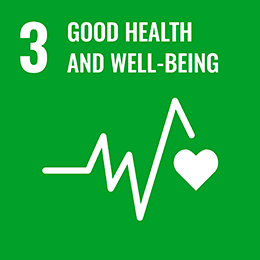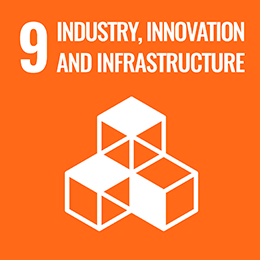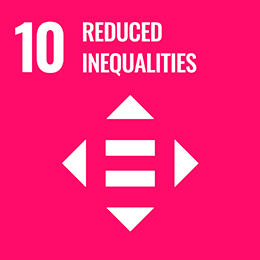Mind the Gap

Share this article
Madness of Crowds
“In individuals, insanity is rare; but in groups, parties, nations and epochs, it is the rule” ― Friedrich Nietzsche
There was an excellent book called Innumeracy by John Allen Paulos, aimed (or so I thought) at teenagers. Its central tenet was that none of us are very good at interpreting statistics. And sometimes, this is a matter of life and death. Right now, the average age at death for Covid-19 victims globally is almost 80 years. We may all have lost a few months of average life expectancy this year.
But if that’s not clear think of it this way: in March we were, on average, as likely to die of Covid-19 as we were by biking for seven miles across a large city; by driving a car for 33 miles; or of by being hit by an asteroid over a lifetime, according to our friend Alexander Ineichen.
The response of governments globally to this ‘risk’ has been to take this decision out of our hands and to deprive millions of citizens of their liberty, regardless of their age and health profile. We are all enemy aliens now. Interned in our own homes and fed on a diet of fear.
The collateral damage from the prolonged loss of freedom; fears of contracting the virus and potentially dying; anxiety around job and financial security; all on top of the stresses of multi-tasking work and child/elder care is mounting.
“We are all susceptible to the pull of viral ideas. Like mass hysteria” - Neal Stephenson
This is all further whipped up into hysteria by how we consume and absorb information in real time. We are all plugged into the Matrix now, and Alphabet (who broke themselves up so that governments wouldn’t have to), is at its heart.
At the same time, we have directed our innate human optimism towards the stock markets, which we have propelled to levels unthinkable in March. With honourable exceptions in New Zealand, our politicians have disappointed us, but central banks and large technology company earnings have not. For now.
Day traders are kings and some of the largest hedge funds are court jesters. Meanwhile, decades of regulatory pressure have forced pension and insurance institutions to purchase government bonds at almost any price.
What is going on?
We now understand, thanks to Netflix and the producers of The Social Dilemma, that social media, smart phones and search companies have corrupted our neural pathways to be pleasure seeking and hyper kinetic.
We also know that no one in Silicon Valley lets their kids have anything like the exposure to screens that we all do. Everyone’s Instagram profile looks just rosy, whilst suicide rates rocket to 56% over 10 years among young people. The Facebook-owned platform has had to ban graphic images of self-harm. How we seem and how we actually feel are very different things.
Maybe, the stock market surge is simply down to the fact that we are trying our best to will a better world into existence. Like our smiling face on Instagram next to a home-baked sourdough loaf at the end of another day of ‘lockdown’ aka ‘confinement’.
Meanwhile, we buy Tesla stock, not as an investment but as a vote for a greener future and a belief that a single maverick is a better bet than any grey, always-disappointing politician.
Yes, it’s true that discounting so-far impressive tech earnings at close to zero interest rates can rationally propel stock capital values to these levels but, at the same time, is it rational to believe that the monopolistic model of many of these companies will remain unchallenged for much longer?
“There is no adequate protection against psychic epidemics, which are definitely more devastating than the worst of natural catastrophes” - Carl Jung
Carl Jung, who was a medical doctor when the Spanish flu pandemic killed more than 3% of the world’s population, believed that in our dreams we are all interconnected. Pierre Teilhard de Chardin, who served as a stretcher-bearer in the same Great War, did too.
In 1933, Jung wrote: “Greater than all physical dangers are the tremendous effects of delusional ideas…The world-powers that rule over all mankind, good or ill, are unconscious psychic factors, and it is they that bring consciousness into being and hence create the sine qua non for the existence of any world at all”.
If Jung is right, then it is the ‘unconscious’ dark side of our leaders that has brought us to this point of mass psychosis, now termed coronaphobia. We are social creatures, who need each other’s company, words and touch, and we are being kept apart.
This disconnection and the pandemic’s widening social and economic divisions¹ could make the virus deadlier and do more damage than we have yet realised. The gap is not simply between world economies and the level of the stock market, but between the sane and insane world.
Fuelled by largely ill-equipped fear-based leadership, the psychosocial impact of Covid-19 has generated a plethora of coronavirus-related psychiatric manifestations that have exacerbated our already anxiety-driven lifestyles.
The long-term impact of this cocktail of fear, stress and anxiety is a mental health bill that is already accruing interest. According to The Lancet Commission’s 2018 report, mental disorders were already predicted to cost the global economy $16 trillion by 2030.
Now Covid-19 fatigue and coronasomnia are changing mental health landscape. Various European studies are showing the severity of the situation with 19 million adults in Great Britain reporting high levels of anxiety and, in Belgium, the number of people aged between 16 and 24 feeling depressed has tripled for women and quadrupled for men during the pandemic.
But what does this mean for the markets? In Animal Spirits: How Human Psychology Drives the Economy, and Why It Matters for Global Capitalism, George Akerlof and Robert Shiller explain that from blind faith in ever-rising housing prices to plummeting confidence in capital markets, it is human psychology driving the financial markets globally.
In their book, the authors challenged the economic wisdom that led to the crisis of 2008/2009 and explained that an effective response had to take into account the effects of animal spirits. Four years before the dotcom crash, then Fed chairman Alan Greenspan described the internet bubble as ‘irrational exuberance’. That was Tech 1.0.
Shiller, Sterling Professor of Economics at Yale and author of Irrational Exuberance has commented on the US CAPE ratio at 32 at the end of September. “We have only seen two periods in available history where the CAPE ratio has been above 30, namely the 1920’s prior to the Great Depression and in early 2000 as the Nasdaq bubble peaked,” Shiller and the co-authors of CAPE and the COVID-19 Pandemic Effect, said. “Even during the 2007/2008 financial crisis, the CAPE ratio did not exceed 30”.
We strongly suspect that the stock market has not yet truly expressed how damaged we feel. Our animal spirits will be swiftly dampened when the world reopens and we can survey the damage done properly: the corner deli, restaurant and dry cleaner; all closed for good. The local cinema too. Maybe the local soccer or rugby club. Places where people congregate.
We also suspect that governments, in a post-coronavirus rush to justify their existence (and to distract us from the various litigations and enquiries into ineptitude, procurement-governance, and accidental homicide, where the aged are concerned) will start to dismantle both the monopolies, data/privacy practices and fiscal abuses that have characterised Big Tech 2.0.
All of this will stall the earnings train, and, of course, taxes will rise everywhere, even places unused to such notions, such as the Gulf states. Does this all sound a bit like science fiction?
Well, you could be forgiven for thinking we are living the prologue to Snow Crash, a novel that opens in 21st century Los Angeles after a worldwide economic collapse, where Zoom is our Metaverse and Covid-19, the DNA altering virus.
Published in 1992, Neal Stephenson’s world is run by private organisations and entrepreneurs, and hyperinflation has destroyed the value of the US dollar to the point the quadrillion dollar note is the standard small bill. In living memory, the exchange rate of the German mark to the American dollar was about one trillion to one.
As we approach a time of festivities inspired by the ancient festival of light, we turn to the future, where despite everything, there is light.
Tech 3.0 has begun: FoodTech, MedTech, BioTech, as well as mental wellness, a $121 billion traditional and alternative industry, have all been catalysed by this once in a generation event.
Right now, geo-politics looks ropey; democracy-undermined by a mixture of bad actors and old-fashioned incompetence; ‘strong’ dictators popping up; and even Barak Obama opining that it’s too early to tell whether or not multi-cultural societies actually work. Post-multiculturalism is a real thing, at least, for now, just in Stephenson’s novels.
If markets do reflect our collective psyche, the worst is yet to come, but conditions for the next big upswing are in place.
Photo: © Niki Natarajan
Artist: Jay Kaes 2017
¹ As Coronavirus Deepens Inequality, Inequality Worsens Its Spread, The New York Times (16.3.2020)
Article for information only. All content is created and published by CdR Capital SA. The views and opinions expressed in this article are those of the author(s). Information on this website is only directed at professional, institutional or qualified investors and is not suitable for retail investors. None of the material contained on this website is intended to constitute an offer to sell, or an invitation or solicitation of an offer to buy any product or service. Nothing in this website, or article, should be construed as investment, tax, legal or other advice.
Related articles
Smart Health
Hugging is potentially lethal and we clap hospital heroes from our homes, many of us realise we have taken the funding and efficiency of our healthcare systems for granted. But health, its data and delivery is changing. What is the future of healthcare?

Covid-19
Exactly one month ago I wrote a mail to my friends and partners and told them, “This is real, and, we are already too late”. I was speaking about the illness we now know as the coronavirus (Covid-19). SARS and insurance/mortality statistics my evidence.

Do Markets Care?
In an age of data overload and ‘trending topics’ it is often best to look at what is NOT trending: counter trends. Take Byron Wien’s Predictions for Ten Surprises, which he defines as events with one in three chances but he believes has a 50% likelihood.





